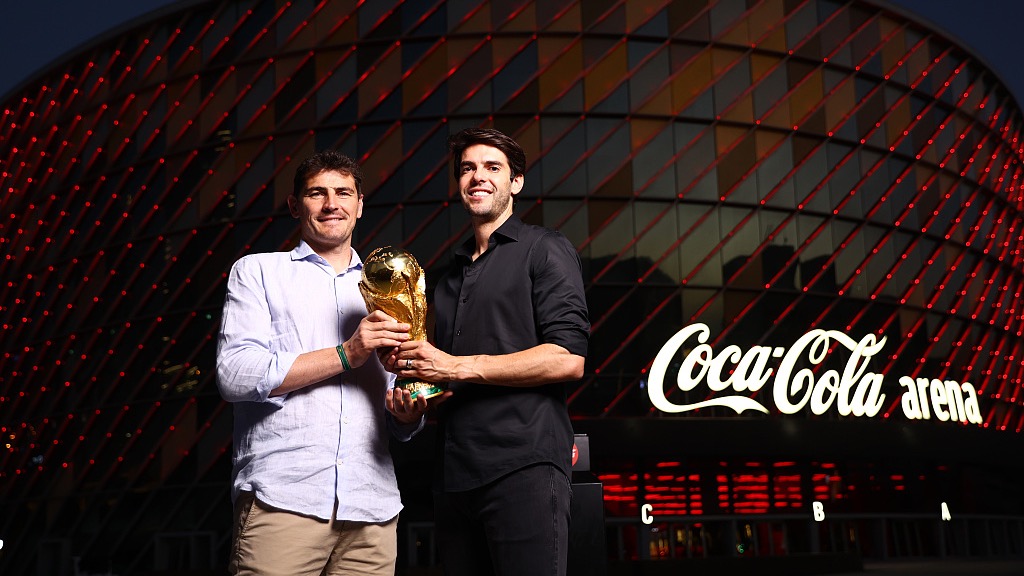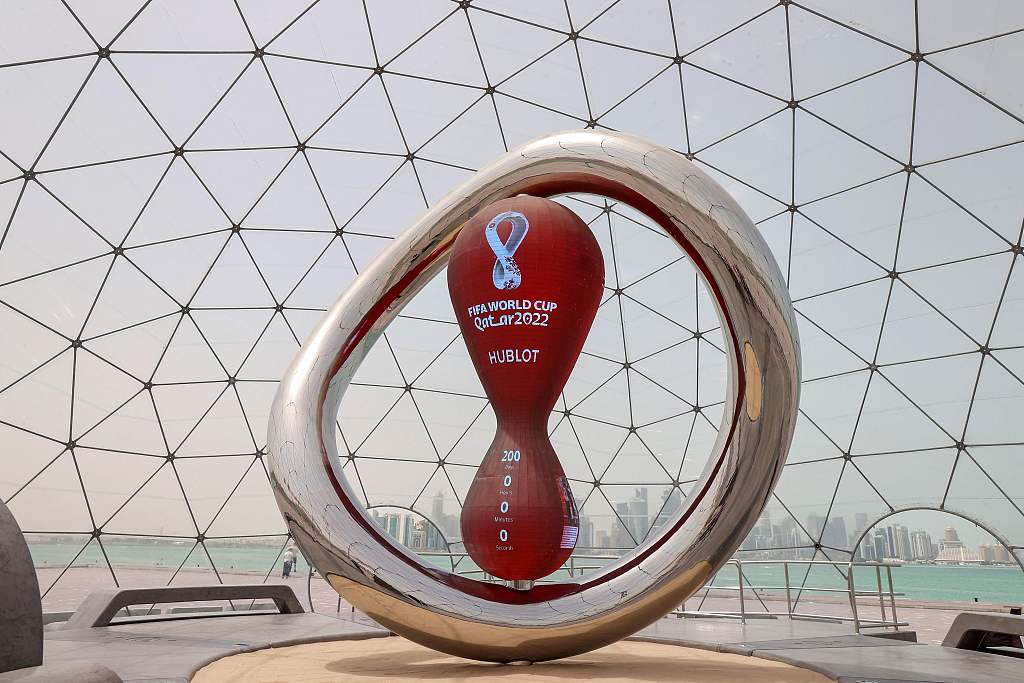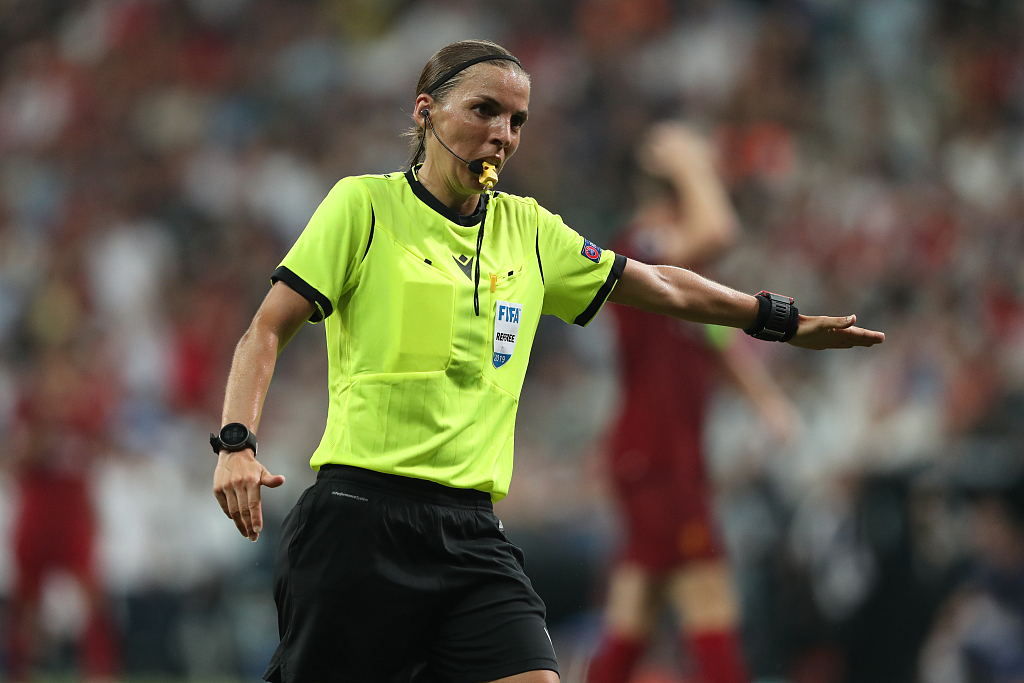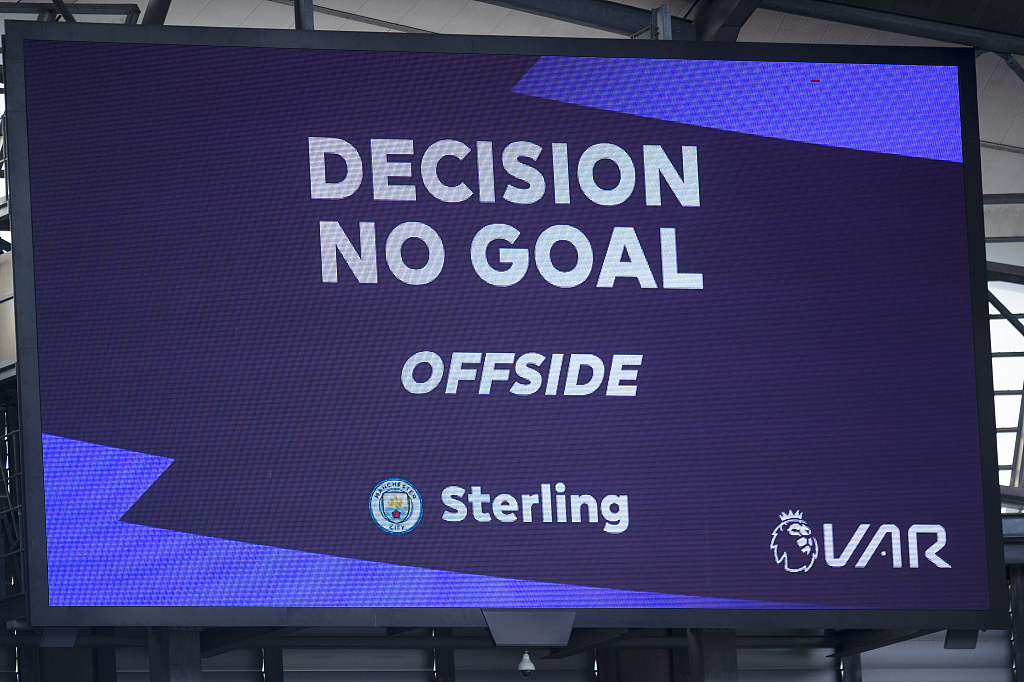
FIFA World Cup Trophy tour ambassador Iker Casillas (L) and Kaka pose for picture with the trophy at Coca-Cola Arena in Doha, Qatar, May 11, 2022. /CFP
FIFA World Cup Trophy tour ambassador Iker Casillas (L) and Kaka pose for picture with the trophy at Coca-Cola Arena in Doha, Qatar, May 11, 2022. /CFP
Qatar 2022 is destined to be an unorthodox World Cup.
For the first time in its 92-year history, the biggest showpiece event in football is coming in the Middle East region and in the winter months, as opposed to summer. Some matches will be staged in the world's largest air-conditioned open-air arena and officiated by trailblazing female referees.
In another first, FIFA announced on Thursday night that the number of players to be included on the final squads for this year's World Cup finals in Qatar from November 21 to December 18 will be increased to a maximum of 26.

A partial view shows the World Cup clock starting the 200-day countdown in Doha, Qatar, May 5, 2022. /CFP
A partial view shows the World Cup clock starting the 200-day countdown in Doha, Qatar, May 5, 2022. /CFP
The world football's governing body explained that the new change was made "given the need to retain additional flexibility due to the unique timing" of Qatar 2022 as well as "the broader context of the disruptive effects caused by the COVID-19 pandemic on squads before and during tournaments."
FIFA confirmed that teams could name up to 15 substitutes for a game, which means all can sit on the bench, and no player is left out.
The latest decision to expand rosters means the World Cup will adopt a major rule change for the third straight edition.

FIFA has selected three female referees and three female assistants to take charge of matches at the Qatar World Cup. /CFP
FIFA has selected three female referees and three female assistants to take charge of matches at the Qatar World Cup. /CFP
Goal-line technology was used for the first time at the 2014 World Cup. The technology tracks the position of the ball in relation to the goal-line, with the aim of eliminating human error when deciding whether a goal has been scored or not.
The video assistant referee (VAR) made its debut at the 2018 World Cup. It's a team of three assistant officials removed from the action on the pitch, operating from a video room to review decisions made by the main referee. Four types of decision are spotlighted: goals, red cards, penalties, and mistaken identity when awarding a card.
The utilization of goal-line technology and VAR has stoked controversies and the squad size expansion is no exception. Some argued that it favors football's powerhouses because they can keep more players involved by making more changes.

VAR screen displaying "Decision No Goal Offside" during a Premier League match between Manchester City and Southampton at Etihad Stadium in Manchester, England, September 18, 2021. /CFP
VAR screen displaying "Decision No Goal Offside" during a Premier League match between Manchester City and Southampton at Etihad Stadium in Manchester, England, September 18, 2021. /CFP
But England manager Gareth Southgate indicated the change is long overdue. He complained that leaving three players out from each match-day squad had impacted squad harmony.
"If the squads are going to be bigger, then it needs to be a situation where everybody is able to change on a match day," Southgate told a press conference. "Whether a bigger squad is necessary... originally that was for COVID, there's now people talking about the condensed fixtures.
"I still think it's a bigger skill to pick a 23 and to work all that out. But I think everybody has to be available for all the games."

